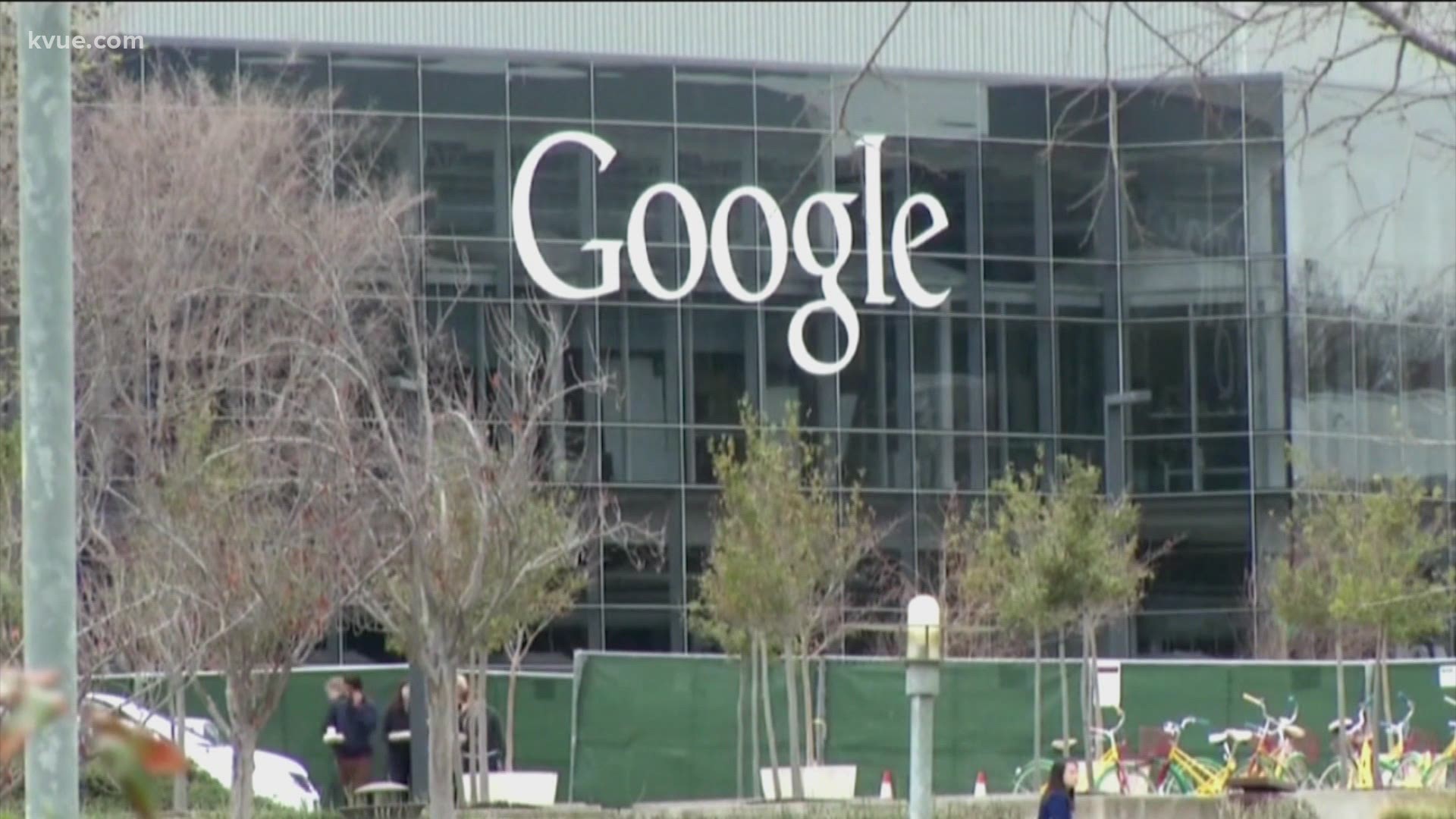AUSTIN, Texas — Editor's note: The video published above is a KVUE report from 2020, when Paxton was a part of a multi-state lawsuit alleging anti-competitive advertising practices.
Texas Attorney General Ken Paxton announced Monday he is suing Google, alleging that the company is systematically misleading and deceiving Texas consumers in violation of Texas’ Deceptive Trade Practices Act.
Paxton's lawsuit alleges that Google misled Texas consumers by continuing to track their location even when the user tried to prevent it. Paxton goes on to claim that Google "uses the ill-gotten data it accumulates to send targeted advertisements to the consumer, thereby earning enormous profits from wrongfully collected personal data."
Paxton claims that despite turning off the "location history" setting, the company allegedly continues to track users’ location "through other settings and methods that it fails to adequately disclose."
“Google’s founding motto is ‘Don’t Be Evil.’ And yet it systematically lies to millions of consumers in order to stack billions of dollars into its coffers,” said Paxton. “Big Tech companies like Google continue to erode the American way of life and often break the law to maintain their overwhelming dominant market position. This lawsuit is just another part of my fight against Big Tech. I’ll hold Google accountable for misleading and deceiving Texans. This is not only an unethical invasion of privacy – it’s against the law.”
Click here to read a copy of the lawsuit.
This is Paxton's third lawsuit against Google, according to his office. In 2020, Paxton was a part of a multi-state lawsuit alleging anti-competitive advertising practices.
KVUE has reached out to Google for a statement regarding the lawsuit and a spokesperson said:
"The Attorneys General are bringing a case based on inaccurate claims and outdated assertions about our settings. We have always built privacy features into our products and provided robust controls for location data. We will vigorously defend ourselves and set the record straight.”
A spokesperson from Google said the company has made "multiple improvements to make location data easy to manage and understand, while minimizing the amount of data stored." Examples of these efforts, according to the spokesperson, include:
Simple Settings: Auto-delete controls launched in June 2019 to help people automatically delete their location data on a rolling basis, without doing any extra work. Google said it also launched Incognito Mode in Google Maps, which allows you to browse and get directions without saving this information to your Google Account.
Improved Defaults: Google said, in June 2020, it made auto-delete the default setting for all new Google Accounts - meaning that any activity data older than 18 months is automatically deleted for more than 2B people every day. The spokesperson said this significantly reduces the amount of location data stored by Google. Google said it promoted the launch of auto-delete controls prominently on Google’s homepage, and added it as an easy-to-use option in Google’s Privacy Checkup.
Increased Transparency: The spokesperson said Google also made it easier to access key location settings right from Google Search (see: the bottom of the Search results page); Google Maps (see: the Your Data in Maps page); and the Google Search app (see: Your Data in Search). Google said it also published a detailed explanation about how location helps improve Google services on its policy page.
Data Minimization: Google said it rolled out a "major backend change" that prevents precise location information from being stored when people Search on Google. The spokesperson said that now Google always estimates the general area, as opposed to the precise location you’re searching from. This area spans the size of a small town and includes at least 1,000 people.
- Better Controls and Restricted Location Access on Android:
The spokesperson said that on Android 11, Google gave people even more control over their location data with the ability to grant a temporary “one-time” location permission. This means that apps can only access the data until the user moves away from the app, and they must then request permission again for the next access.
Google said it also updated its policies so that all apps must get explicit approval to request background location - or else they’ll be removed from the Play Store.
PEOPLE ARE ALSO READING:

